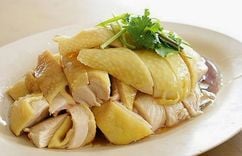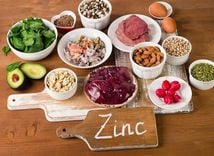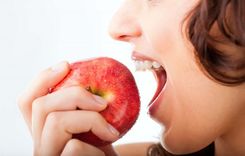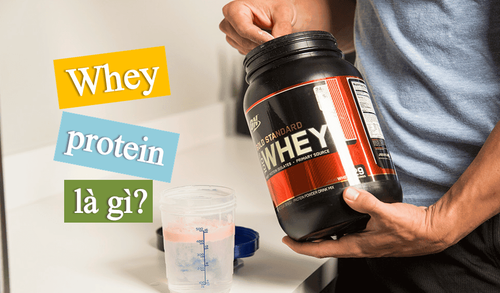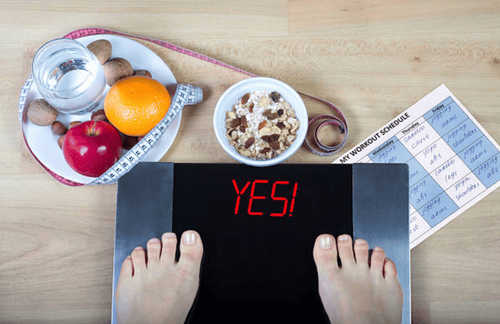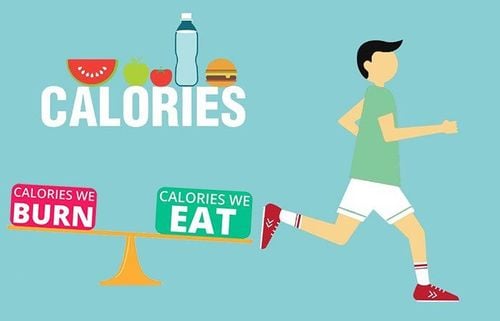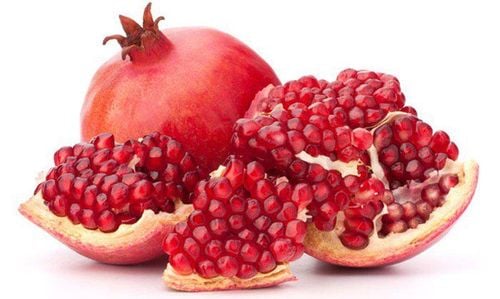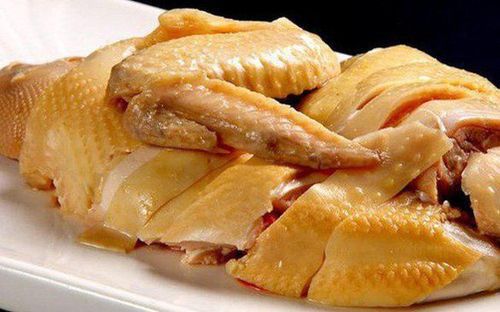A balanced diet is one that includes different foods in certain quantities and proportions such that the need for calories, protein, vitamins, minerals, and alternative nutrients is sufficient. and small amounts are stored for short-term replenishment of nutrients. In this article, you will learn more about what a balanced diet is and how to achieve healthy eating.
1. What is a balanced diet?
A balanced diet must provide bioactive phytochemicals such as dietary fiber, antioxidants, and other healthful nutrients. A balanced diet should provide about 60-70% of total calories from carbohydrates, 10-12% from protein and 20-25% of total calories from fat...
To get the nutrition you need, most Most of your daily calories get from sources:
- Fresh Fruits
- Fresh Vegetables
- Grains
- Legumes
- Nuts
- Lean
- Protein
Your body uses energy from food to walk and jog , think, breathing and other vital functions. The average person needs about 2000 calories a day to maintain their weight, but the number of calories will depend on their age, gender, and physical activity level. Men tend to need more calories than women, and people who exercise need more calories than people who don't.
Below is a list of calories intake for men and women of all ages:
| Group | Calorie Requirement |
| Sedentary children (2–8 years) | 1.000–1.400 |
| Active children (2–8 years) | 1.000–2.000 |
| Females (9–13 years) | 1.400–2.200 |
| Males (9–13 years) | 1.600–2.600 |
| Active women (14–30 years) | 2.400 |
| Sedentary women (14–30 years) | 1.800–2.000 |
| Active men (14–30 years) | 2.800–3.200 |
| Sedentary men (14–30 years) | 2.000–2.600 |
| Active individuals (30+ years) | 2.000–3.000 |
| Sedentary individuals (30+ years) | 1.600–2.400 |
Your daily calorie source is also important. Foods that provide mostly calories and very little nutrition are called “empty calories”.
- Foods that provide empty calories include:
- Cakes, cookies and donuts
- Processed meat
- Energy drinks and soft drinks
- Sugar-sweetened fruit drinks
- Ice cream
- Chips
- Pizza
- Soft drinks
To maintain good health , limit your consumption of empty calories and try to get your calories from other nutrient-rich foods instead.
2. Health benefits of a balanced diet
Eating healthy boosts energy, improves the way the body functions, boosts the immune system, and prevents weight gain. Other key benefits are:
- Meets your nutritional needs. A varied, balanced diet provides the nutrients needed to avoid nutritional deficiencies.
- Prevention and treatment of certain diseases. Eating healthy can prevent the risk of developing certain diseases such as diabetes, cancer and metabolic heart disease. It is also helpful in the treatment of diabetes and high blood pressure.
- Following a special diet can relieve symptoms and may help you better manage your illness.
- Feel energized and control your weight. A healthy diet will help you feel taller, give you more energy, and help you fight stress.
- In addition to its nutritional properties, meals also help facilitate interpersonal connections.
3. What to eat to have a balanced diet
A healthy, balanced diet will typically include the following nutrients:
- Vitamins, minerals and antioxidants
- Carbohydrates, including starches and fiber
- Proteins
- Healthy fats
Followers of the diet
A vegan diet will focus entirely on plant-based foods. They will not eat meat, fish or dairy, but their diet will include other items that provide similar nutrients.
For example, tofu and beans are good sources of plant-based protein. Some people are dairy intolerant but can still build a balanced diet by choosing a variety of nutrient-rich alternatives.
Learn the foods to eat and avoid to get a balanced diet.
3.1. Fruits
Fruits are very nutritious, they make snacks or desserts to satisfy those who want something sweet.
Choose fresh and seasonal local fruits that provide more nutrients than imported fruit. Fruit is high in sugar, but this sugar is a natural sugar unlike candies and many sweet desserts, fruit also provides fiber and other nutrients. Fruit does not cause sugar spikes, but also enhances the supply of vitamins, minerals and antioxidants needed by the body.
If you have diabetes, your doctor or dietitian will advise you on which fruits to choose, how much to eat and when to eat.

3.2. Vegetables
Vegetables are a major source of essential vitamins, minerals and antioxidants. Eat lots of vegetables of different colors to get full nutrients.
Dark vegetables are an excellent source of many nutrients, some dark vegetables such a :
- Spinach
- Kale
- Broccoli
Seasonal local vegetables reasonably priced fresh and easy to prepare It is a perfect choice for a balanced diet. You can prepare it in the following ways:
- As a side dish
- Stir-fry with a little olive oil
- Prepare salads and salads
- Prepare smoothies or detox dishes
- Add to stews, soups, noodle dishes.
3.3. Nuts
Refined white flour is used in many breads and baked goods, but has limited nutrition. This is because most of the good stuff is in the shell of the seed, or the outer shell has been removed during processing.
Whole grain products include the whole seed and shell. They provide extra vitamins, minerals and fiber. Many people like to eat cereal because it adds to the flavor and texture of the dish.
3.4. Protein
Meats and beans are the main source of protein, which is essential for wound healing, maintenance and growth of strong muscles.
- Animal protein Includes:
- Red meat: Beef, pork, lamb
- Poultry: Chicken, duck
- Fish: Salmon, sardines and other oily fish.
Processed and red meats can increase the risk of cancer and other diseases. Some processed meats are also high in preservatives and salt. Ideally, you should choose fresh meats, slaughtered on the day.
- Plant Proteins
- Nuts, beans and soy products are good sources of protein, fiber and other nutrients. These are considered healthy alternatives to meat.
- Some examples are: Lentils, peas, almonds, sunflower seeds, walnuts, soybeans...
3.5. Dairy products
Dairy products provide essential nutrients, including:
- Protein
- Calcium
- Vitamin D
They contain fat. If you are looking to limit your fat consumption, you should consult with your doctor to choose the right product for you.
For those following a vegan diet, many other milk alternatives are available, made with:
- Flaxseeds
- Almonds and cashews
- Soybean
- Oats
- Coconut
They are often fortified with calcium and nutrients other nutrients, making them excellent alternatives to cow's milk. Some have added sugar, so read labels carefully when choosing.

3.6. Fats and Coconuts
Fat is essential for energy and cell health, but too much fat can add calories beyond what your body needs and can lead to weight gain.
In the past, many people believed that saturated fat should be limited because it will increase cholesterol levels. However, recent studies suggest that partial replacement of unsaturated fats reduces the risk of cardiovascular disease, and that some saturated fat should still be included in the diet - about 10%. or less calories
But you should especially avoid trans fats.
- Recommendations for adding fats include:
- Recommended: Vegetable oils and fish oils
- Limit fats: Butter, cheese
- Fats to cut: trans fats, used in many varieties processed and ready-to-eat foods, such as donuts, fried chicken, french fries, etc.
Most experts consider olive oil to be a healthy fat, and especially extra virgin olive oil, is the least processed variety.
4. General principles for healthier eating
- The most important rule of healthy eating is not to skip any meals. Skipping meals lowers your metabolic rate. Normal eating includes 3 main meals and 2 snacks between meals. Also, never skip breakfast. This is the most important meal of the day.
- Learn simple ways to prepare food. Eating healthy doesn't have to mean complicated eating. Keep meal prep easy, eat plenty of raw foods like salads, fruits, and vegetable juices, and focus on the fun of eating healthy foods rather than calories.
- It is important to stop when you feel full. This will help you maintain your weight to some extent. This will also help you stay alert and feel your best.
- Drink a lot of water. Keep a water bottle near you when working, watching TV, etc.
- Use a variety of foods in the menu. No food has all the nutrients.
- To improve the quality of cereals and pulse proteins, the minimum ratio between grain protein and pulse protein should be 4:1. For cereals, it will be eight parts grain and one part grain.
- Eat five servings of fruits and vegetables each day.
- Keep a supply of healthy snacks on hand. This will prevent you from eating an unhealthy snack when hungry.
- Remove all visible fat from the food before you cook it. Peel the chicken skin from the meat and trim off the white fat from the meat.
- Limit stimulants like caffeine, alcohol, and refined sugar. Limit the number of times you eat out to once a week.
- Bring your own packed lunch to work.
- Eat only things you like the taste of - find things that work for you and don't force yourself to eat things just because they're good for you.
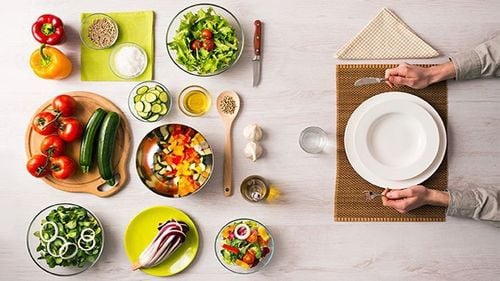
- You should reduce meat and add vegetables to your dishes.
- Deep-fry to remove excess oil Use low-fat yogurt instead of mayonnaise.
- Add chopped fruit to your yogurt instead of flavored yogurt.
- Try to eat skim milk instead of whole milk.
- Eat boiled vegetables instead of sautéed vegetables to avoid loss of nutrients.
- Fat in food should be kept to a minimum.
- If you want to use oil, try cooking oil spray or oil with pastry brush. Cook in liquid form (such as vegetable stock, lemonade, juice, vinegar, or water) instead of oil. Use low-fat yogurt, evaporated low-fat soy milk, or cornstarch as a thickener instead of cream.
- Choose vegetables that are washed rather than peeled because the peel has many nutrients. When you boil vegetables, save the vitamin-rich water and use it as a stock in another dish.
A varied and healthy diet is usually one that is high in fresh, plant-based foods and limited in processed foods.
If you have questions about your diet or feel you need to lose weight or change your eating habits, make an appointment with your doctor or dietitian. They can recommend changes to your diet to help you get the nutrients you need while promoting your overall health.
Please dial HOTLINE for more information or register for an appointment HERE. Download MyVinmec app to make appointments faster and to manage your bookings easily.
References: healthline.com, narayanahealth.org

